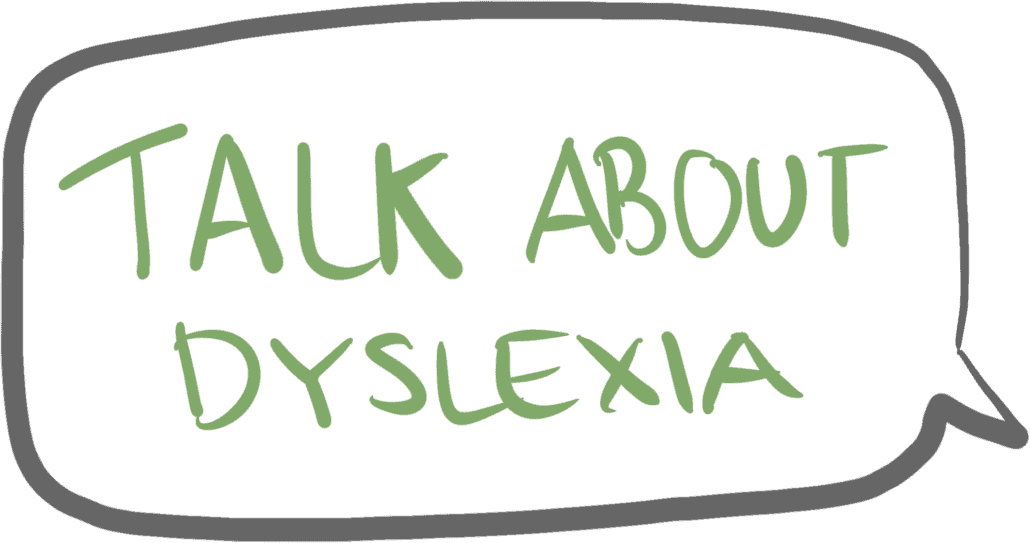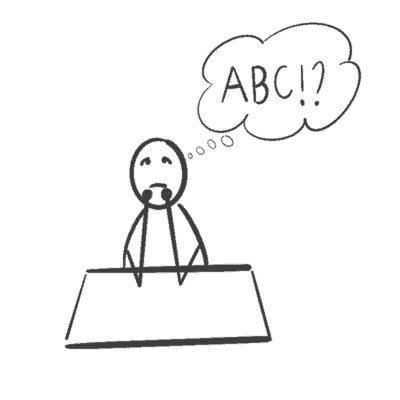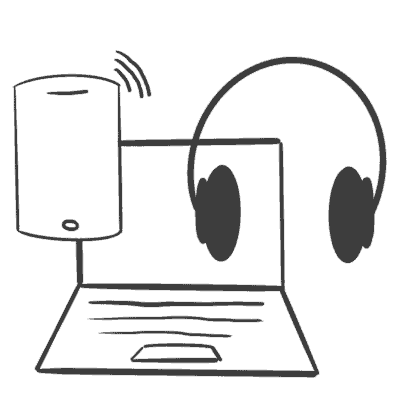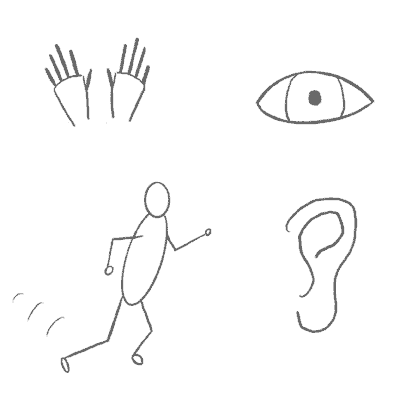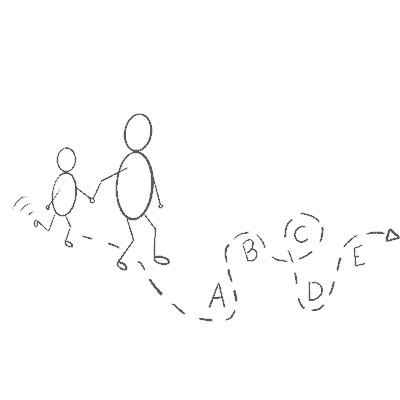Are you trying to figure out what dyslexia is, and what it means to your child?
You may also be thinking: “Why can’t my child understand the letters? Can a child outgrow this problem? And how do I help my child progress?”
Then you have come to the right place, because I can help you.
Dysleixa Is Normal
Dyslexia makes it difficult to learn how to read and spell.
To be dyslexic means that your child finds it challenging to convert letters to sounds when they are reading and spelling.
An inherent disability in the brain causes this, making the brain imprecise and slow when it has to convert letters to language sounds.
That’s all there is to it. Your child is neither dumb, weird, or sick.
Dyslexia is referred to as phonological disorder by professionals. The International Dyslexia Association uses this definition:
“Dyslexia is a specific learning disability that is neurobiological in origin. It is characterised by difficulties with accurate and/or fluent word recognition and by poor spelling and decoding abilities.
These difficulties typically result from a deficit in the phonological component of language that is often unexpected in relation to other cognitive abilities and the provision of effective classroom instruction.
Secondary consequences may include problems in reading comprehension and reduced reading experience that can impede growth of vocabulary and background knowledge.”
There Are Dyslexic People In All Classes
Up to 15-20 percent of the U.S. population is assumed to have dyslexia. So, your child is not alone in their struggle with letters, although he or she might believe it.
Therefore, there will be children with reading and spelling difficulties in all classes. And dyslexic people are found in all cultures and social classes.
If children with reading and spelling difficulties are equally distributed in age across the country, that means your child will not be the only one in the class that struggles with letters.
Dyslexia Is Hereditary
Your child is also, perhaps, not the only one in the family to fight with their letters. Dyslexia is hereditary. That means that dyslexic individuals often have a parent or a family member that also has dyslexia.
If that is the case in your family, it gives you an excellent opportunity to talk about what dyslexia is and what that means for your child and other family members that are also dyslexic.
This heredity does not mean that you have passed on a particular dyslexia gene to your child. Dyslexia is a result of the composition in the genome, which you and the child’s other parent have passed on to your child. That is, the prerequisites for learning how to read and spell.
Neither you nor your child has done anything to make your child dyslexic.
This is the same thing as if, for instance, your genome makes you particularly good at running because you have the perfect legs for it. Or you may be particularly good at playing music because your heredity makes you able to perfectly sense tones, rhythm, and so on.
Besides the heredity factor, you should also remember that you can positively influence your child. For instance, you can help in the development of your child’s vocabulary. You can talk a lot with your child and read many books so that your child learns new words all the time. In this way, the child will already have these reading abilities once the written language starts giving them trouble.
Understand your dyslexic child
It can be challenging to be a parent and help with the homework without getting frustrated.
Use the apps and tools
Have you also thought about what apps and programs that are best? Then your child could get their homework done without issues…
The dyslexic brain
Have you also been wondering if there is something wrong with your dyslexic child’s brain? That is, why the head cannot comprehend those pesky letters.
How To Help Your Child With Dyslexia
You may already know what dyslexia is, that it is hereditary, and that many are dyslexic.
What you need the most is support so you can help your child when the letters become challenging.
As you help your child, you have to keep in mind that no matter what is causing your child’s dyslexia, they are having a difficult time with their letters.
For instance, the feeling of not being able to do anything can arise no matter what causes the reading and spelling difficulties.
Your child’s thoughts and feelings are, therefore, not dependent on the cause of the difficulties.
Understand Your Dyslexic Child Better
It can be difficult to understand what is going on inside your child’s head when the lines on the paper are letters to you but for your child are just lines with no meaning.
All dyslexic people experience their dyslexia in their own way. Therefore, it is difficult to say exactly how your child thinks, feels, and acts when the lines on the paper are just lines.
My work with helping dyslexic children and adolescents has shown me that several common denominators often characterize dyslexic people’s thoughts, feelings, and actions.
Imagine that your child is sitting in school with more than 20 classmates and thinks that he or she is the only one who cannot make the letters say the right sounds.
Then your child might be feeling different and like an outsider. When the apps and tools for dyslexics have to be brought forward in the classroom, it might make it even worse.
When you sit at home with homework, and the mood is down because your child has made all kinds of attempts to avoid doing the homework, then your child might believe that he or she is stupid. Even math tasks are not making sense because there is a lot of text involved in these tasks too.
The whole thing can influence your child’s self-confidence and self-worth, and it can cause other social and psychological challenges. Your child’s overall learning and well-being can be hindered as well.
I have experienced that. My low self-confidence and self-worth made school a place where I didn’t want to spend any more time than necessary.

It can be difficult to see your child challenged that way. But here, it is important to remember the knowledge we have about dyslexia.
Your Child Is Exactly As They Are Supposed To Be
There is no correlation between dyslexia and intelligence. Your child is not dumb because they are dyslexic. And dyslexia is not a disease.
Your child can be seen as different in a school context. Learning is built up around the premise that we should all sit still and learn by reading and spelling. That is precisely what your child finds difficult. But as a human being, your child has just as much worth as any other person. Your child is wonderful.
Your child should not be thinking that he or she “cheats” by using assistive technology. If your dyslexic child could not use any tools to convert letters to sounds, that would be the equivalent of not allowing people with poor vision to wear glasses to see better.
It is possible to learn a lot of strategies so that your child can compensate for the challenges that are caused by dyslexia. Most children find their own ways to solve these challenges since they cannot do it in the same way as their peers.
Unfortunately, not all strategies are positive. You may know this already.
Some children find their own strategies such as making trouble, procrastinating, or becoming very closed off.
I was one of those that made up my own strategy to avoid the letters in school—and also at home when my mum said that it was time to do homework.
I couldn’t sit still and often came up with all sorts of trouble or jokes so that I could get away. That caused a lot of frustration for both my teachers and parents.
It is important to remember that no matter what strategy your child needs to get away from their letters, your child is not doing it because they love to cause trouble or be closed off. Your child just doesn’t want to experience more defeats or get into another situation that they cannot manage.
Imagine Being Dyslexic
If you are not dyslexic, try to think about how much energy you are using to read this text.
It doesn’t take a lot, right?
Now, try to imagine that you had to use as much energy as your child does to read a simple text. Just getting one word to make sense demands an enormous amount of energy.
Get an idea of how much energy your child needs for reading by looking at the text below, where you have to guess which fairytale the text is from.
The text shows how much energy a dyslexic person uses to read a text. A whole lot more than you usually need, right?
It is important to know that the letters are not jumping around and dancing for dyslexic people as they do in this text. It only shows people without dyslexia how much energy dyslexic people use to read.
Help Your Child Accept Their Dyslexia
No matter what thoughts and feelings your child is coping with, you can help your child accept their dyslexia.
It is important that your child can move on in life without being hindered by dyslexia.
Because dyslexia will not disappear.
On the other hand, it’s always possible to be better at reading and spelling with the right professional and parental support. But your child might have to go a different way than his or her peers without dyslexia will journey. Each to their own.
Finding what helps becomes easier to figure out when your child’s thoughts and emotions are not an obstacle to their learning or opportunity to show what they are passionate about and good at.
Remember that all people are good at something. You can always inspire your child to see that, to create a good life, your child does not have to be perfect at reading and spelling.
You can talk with your child about how many dyslexic people in the family or among your friends, and even some famous people, have shown that their dyslexia does not hinder them from getting what they want. They have found their own ways to get around letters by using other strengths.
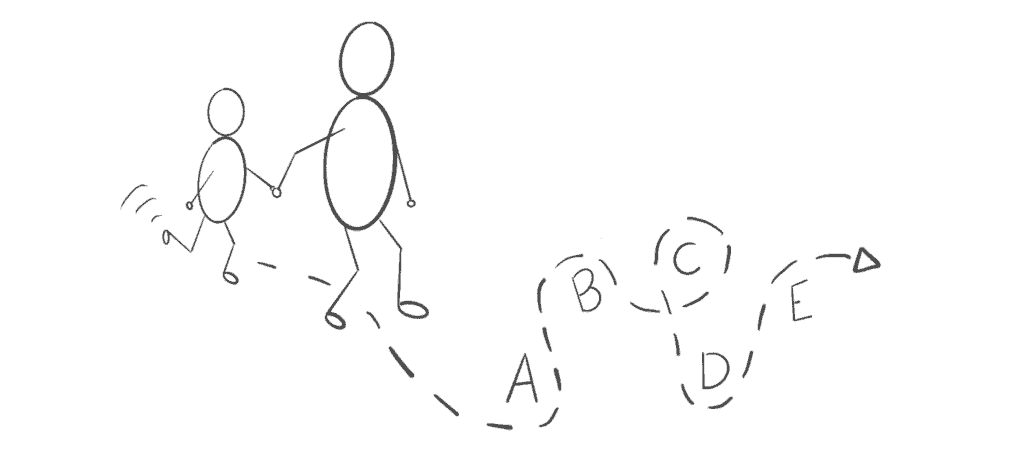
With the acceptance of their dyslexia, the right professional and parental support, and the software and assistive technology that’s at hand, it is possible for your child to get both an education and a job, just like their peers.
Help Your Child In Using Apps And Tools For Dyslexics
You think that the apps are smart, right?
They really are. They can help your child read all kinds of text and write down all their thoughts on paper. They can compensate for your child’s dyslexia. Obviously, your child just has to start using them!
However, it is not that simple for those of us with dyslexia. Again, we are very different. Maybe your child belongs to the group that immediately sees the benefit of using these aids. Then you can spend your time having fun and doing things other than homework.
But you may belong to the group of parents that are growing frustrated because their children do not use the available assistive technology.
If you do belong to this group, you’re in good company. When I was going to school, I knew some parents that felt the exact same way as you do. If there was one thing I did not want to do, it was to use my laptop with all the “special” programs. Why did I have to do that?
“My classmates don’t have to! It is cheating if I use them! My program is broken! The voice reading out loud is boring! Why do I have to use it, just because you say so?!”
You can continue the list here with your child’s excuses: ______________
Look At Your Child’s Needs
One thing for you to consider is how your child sees the idea of using the apps and tools. Another thing is: What are the best types of apps for dyslexics?
Whatever your child is using, those things are connected. If your child can see why they have to use a tool, it will be used.
You can help your child see the point of the apps and tools if you start focusing on your child’s needs.
Is it about reading or writing? Should the software and assistive technology be unpacked quickly and packed away again, or is your child meant to use it for a longer time? Is it essential that your child spells everything correctly, or is it about writing down an exciting story? Is the purpose of the task to make your child understand the content of the text entirely, or should your child read the text by themselves without error?
Some tools are already integrated on computers and apps on smartphones and tablets, while other programs have to be installed with a license.
Could it be that the needed help is already in the child’s pocket?
If your child is dyslexic, the school will have access to licensed software and assistive technology. Here, your child will also be instructed in how this particular tool works.
It is not a sure thing that the assistive technology the school offers is what fits best with your child. Therefore, it is a good idea to try out different programs and apps.
Get three tips to help your child use the tools, without your having to be a teacher or an IT expert.
Accepting the dyslexia
Is your child also finding it difficult to talk about their thoughts and emotions when the letters are teasing them?
Motivation to read
Would you also like to motivate your child to read more? And is it difficult to find the right “carrot”?
Learning styles as a dyslexic person
Many believe that a dyslexic person has more difficulties learning and fewer options for further education. But that is not true…
How To Find Out If Your Child Has Dyslexia
Has your child not been tested yet, but you think that their challenges are caused by dyslexia?
There are some typical traits of dyslexia that you may recognize in your child.
The International Dyslexia Association has listed the following traits:
“The problems displayed by individuals with dyslexia involve difficulties in acquiring and using written language. It is a myth that individuals with dyslexia “read backwards.”
However, spelling can look quite jumbled at times because students have trouble remembering letter symbols for sounds and forming memories for words. Other problems experienced by people with dyslexia include the following:
- Learning to speak
- Learning letters and their sounds
- Organizing written and spoken language
- Memorizing number facts
- Reading quickly enough to comprehend
- Persisting with and comprehending longer reading assignments
- Spelling
- Learning a foreign language
- Correctly doing math operations
Not all students who have difficulties with these skills have dyslexia. Formal testing of reading, language, and writing skills is the only way to confirm a diagnosis of suspected dyslexia.”
If you think that your child is dyslexic, contact your child’s teachers and start a dialogue with them.
But whether or not your child has been tested, you can always help your child thrive. That is accomplished by helping them accept their dyslexia.
Your child’s thoughts and emotions can be difficult to handle for them, on top of fighting to get the right sounds out of the letters.
The joy of learning new things
Feelings are the primary motor for learning. Do you also wish that your child would be more eager to learn new things in school?
Difficulty with learning how to read
Does my child have reading difficulties or dyslexia? You can see that your child is struggling with the letters, but how does your child progress?
Jesper Sehested
Dyslexic, author, speaker and mentor
